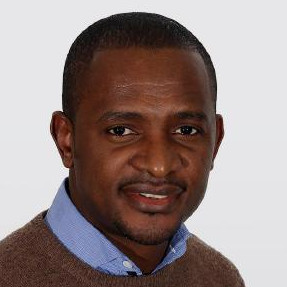
| Version | Summary | Created by | Modification | Content Size | Created at | Operation |
|---|---|---|---|---|---|---|
| 1 | Obinna Johnphill | -- | 601 | 2023-07-24 11:43:12 | | | |
| 2 | Catherine Yang | Meta information modification | 664 | 2023-07-26 07:16:21 | | |
Video Upload Options
1. Brief Introduction
Obinna Johnphill is a remarkable individual, a married man, and a devoted father of two. His journey in computer science has been one of dedication and continuous pursuit of knowledge. He laid the foundation for his academic career by earning a Bachelor of Science (Hons) in Software Development in 2014 from the University of Wolverhampton. Building on his passion for computer science, he further expanded his horizons and obtained a Master of Science (MSc) in Computer Science in 2017 from the same institution. He is pursuing Postgraduate Research leading to PhD in Computer Science, focusing on optimisation algorithms and cybersecurity at Nottingham Trent University. One of his most significant contributions to the scientific community was as a co-author of the journal article "Self-Healing in Cyber-Physical Systems Using Machine Learning: A Critical Analysis of Theories and Tools," published on 17th July 2023. Obinna Johnphill's journey from a BSc in Software Development to pursuing a PhD in Computer Science is a testament to his passion and dedication to advancing knowledge in the field. His notable contribution to the journal article on self-healing in Cyber-Physical Systems using machine learning demonstrates his commitment to positively impacting the scientific community and society. As he continues to delve deeper into his research, there is no doubt that he will leave an indelible mark on the world of computer science and beyond.
2. The Story about Notable Contributions
Obinna's journey into self-healing in Cyber-Physical Systems using machine learning started during his MSc program. He became fascinated by the potential of artificial intelligence and its application in improving the resilience of complex systems. His passion for this topic only grew during his doctoral studies when he decided to focus his research on understanding and analysing the theories and tools used for self-healing in Cyber-Physical Systems. As part of his PhD research, Obinna collaborates with experts in the field, delves into an extensive literature, and conducts rigorous experiments to evaluate existing theories and tools critically. The challenges he has encountered along the way are immense, but his determination and perseverance drive him to find innovative solutions. After years of hard work, analysis, and refinement, he and his co-authors produced the ground-breaking journal article review that sheds light on self-healing in Cyber-Physical Systems using machine learning.
3. Principal Publications
Obinna Johnphill's most outstanding achievement is his contribution to the journal article "Self-Healing in Cyber-Physical Systems Using Machine Learning: A Critical Analysis of Theories and Tools." This publication showcases his expertise in computer science and represents a significant advancement in self-healing systems. The article comprehensively reviews existing theories and tools, identifies their strengths and limitations, and proposes further research and improvement avenues. Its impact on the scientific community has been notable, sparking discussions and inspiring new research directions.
4. Implications for Sciences
Obinna's work on self-healing in Cyber-Physical Systems using machine learning holds profound implications for both the scientific and humanities domains. From a scientific perspective, the journal article offers valuable insights into the state of the art in self-healing systems, enabling researchers and practitioners to make informed decisions. It highlights the potential of machine learning techniques in enhancing the robustness and adaptability of complex systems, opening doors for more advanced and efficient solutions. On a broader level, the research also has implications for society and humanity. Cyber-Physical Systems play a vital role in various critical sectors, including transportation, healthcare, and energy. By contributing to developing self-healing systems, Obinna's work can potentially improve the reliability and safety of these essential infrastructures, ultimately benefiting people's lives.

Location: Unknown




